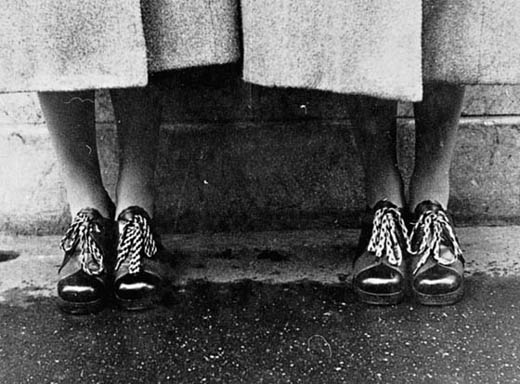Invitation, Newkapolcs Gallery, Summer of 1994
Theses on the Theory of Repetition
1. The unique is devaluated by repetition, with its concrete existence increasing and its essential existence decreasing.
2. Only what is repeated is manifested; only what is repeated is non-existent.
3. The non-existent is sensed by referring to memory.
4. What is born, created or changing, is manifested in repetition, it also dies in repetition.
5. In the turmoil of creation the same can never be achieved twice.
6. Creation accumulates imperceivably, and manifests itself suddenly.
7. The absolute new is unrecognizable, imperceivable, and thus it cannot manifest itself.
8. In the process of representation the thing represented suffers substantial mutilation. This constitutes the fallacy of traditional art, which originally formed the means of magical engagement with the forces of evil and destruction. The representation is partial, since the represented is not reproduced in its own material, thus equally partial is the elimination of the represented. This constitutes the limitation of the magical representation.
9. The perfect copy of the accidental reduced the feeling of the accidental.
10. The existence of human duplicates, twins, is a depressing nonsense and a metaphysical scandal for the individual consciousness, because it increases the feeling of the accidental.*
11. The psychological duplicate (déjà-vu) enhances self-awareness by emphasizing the uniqueness of the Self in complete repetition.
12. By moulding matter, which otherwise would be formed accidentally or according to its own structural properties, into identical forms, serial production protects the consciousness from a feeling of alienation with respect to the natural environment, “common”.
13. Since man can stand neither the catalepsy of total identification nor the dizziness of continuous change and diversity, he regards the sphere of resemblances and analogies, rhythmical changes and dialectical periods as his own. He looks for the same in the different, and the different in the identical. The man of intellect, however, can only recognize himself in total change.

* In the words of Ms. X. Y. “I do not represent my twin sister.”
(1973)
(Translated by Zsuzsa Gábor)